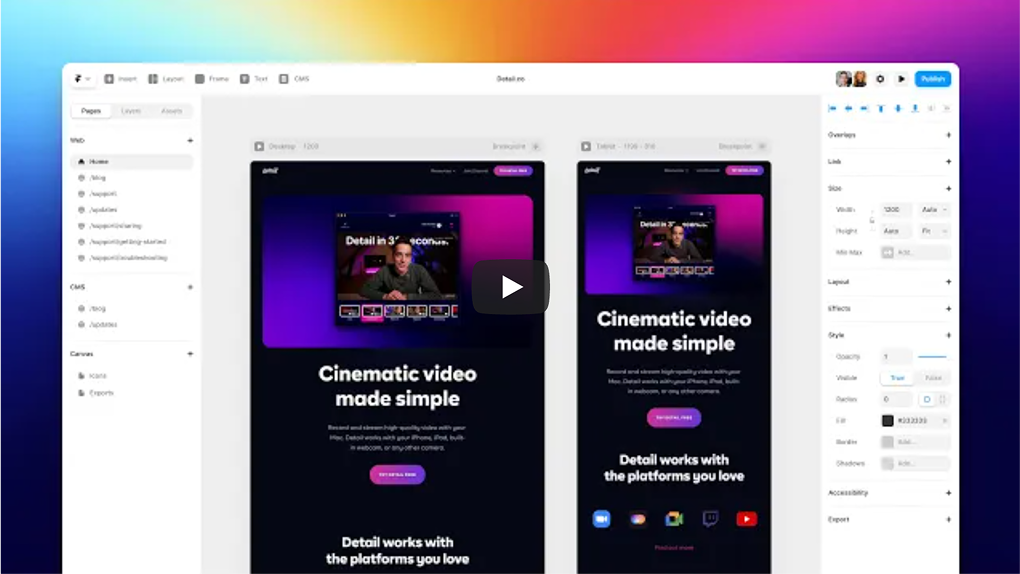
Beyond Targets: Decoding Growth in Sales
March 15, 2023

It’s almost the most common response from senior sales professionals when you ask them about behavioral skills in sales. “No one ever told us that we needed behavioral skills to sell better. We just learnt it as we went along,” and that’s why most organizations struggle with developing high-output sales teams. Behavioral skills or as we call them “power skills” like Critical Thinking, Empathy, Result Orientation, Persuasion, Emotional Self Control are critical skills a solid, productive sales team needs.
However, upskilling sales and customer experience teams is already a challenge for most organizations. It’s often very difficult to go beyond product and process training during onboarding largely due to time constraints, pressure targets and low adoption rates. Across two years, we’ve spoken to over 300 sales leaders and business development heads to understand their priorities and challenges with training sales teams and how they are able to maximize growth.
More often than not, once on the job, sales professionals get caught up in the web of targets and their learning is limited to on-the-job training. However, this hampers long-term growth because most professionals lose out on critical skills needed to do the job unless they’re mentored by their managers. Two skills that hold deep relevance in sales throughout a sales professional’s career are Resilience and Influencing People.
Resilience is the intrinsic ability to overcome hardships and to adaptively cope with stress in a way that allows one to bounce back and resume normal cognitive and physical functions.
We’ve spoken about this power skill a lot particularly when it comes to sales. In a conversation we had with Natasha D’souza of Leap Club, ex-Zomato, we emphasized upon how Resilience plays out across sales and customer experience roles and why it’s crucial to develop in professionals. This is how this power skill plays out in sales particularly:
- Finding new learnings despite not being able to close a sale
- Moving past rejections and overcoming client objections at every stage of the sales cycle
- Maintaining consistent efforts and staying motivated when falling short in target achievement
Influencing People is the ability to modify and affect a person’s thinking, sentiment, behavior, or general perception towards some object or issue through request, reason, demand or indirect methods.
Being able to persuade potential customers to buy in is probably one of those skills frequently taken for granted in a sales professional. While it is considered almost a prerequisite to sales, most organizations don’t invest in really developing this skill in professionals. It is largely expected to be learnt on the job. However, if the skill is actively developed in individuals right from the beginning, it can lead to demonstrable business growth from day one.
- Using data to persuade stakeholders cross-functionally
- Adapting arguments as per needs and interests of relevant stakeholders to align them with your approach
- Using compelling arguments to change opinions of stakeholders
- Understanding complex or underlying needs and choosing words with caution while selling
Sales training needs to essentially cover all ends in order for it to be effective enough to impact business metrics. Organizations often get stuck in the loop of manager training and product training. While this is how conventionally senior sales professionals of today have learnt the ropes, in high-growth startups scaling sales teams rapidly, there is a need for speed when it comes to outcomes. The third missing element in the loop is power skills which actively bridges that gap.
Double clicking on this shows that maximizing growth in sales works on four levels:
- Onboarding training: Ensuring that your workforce is equipped with not only product and process knowledge, but critical power skills required to succeed in a customer facing role.
- Peer-to-peer and top-down learning: Most of the skills required to do exceptionally well in sales are already embedded in people within the system and if that is actively exchanged across teams, it can lead to exponential growth.
- Consultative selling: Going beyond SOPs and getting sales teams to think critically in order to not only bring in customers but retain them is crucial to creating long-term growth.
- Regular refresher training: Implementing learning programs that are easily adaptable and retainable to create a consistent upskilling culture in the team is key to continuous success.
In a recent conversation we had on Skill Flex with Vardan Malhotra, head of business development at AON HR Learning Centre, he said that learning in the flow of work and personalization of learning were the two most effective ways of increasing adoption of learning and improving RoI on learning.
At Fundamento, we believe that’s the way forward as well. Our skills readiness platform integrates with an organization’s workflow to deliver data-backed learning in the flow of work. Book a demo with us today to know more.



